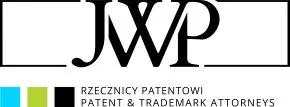In March, the EUIPO published a report on counterfeit pharmaceuticals, showing the massive scale of this illpractice around the world. Today we will look at the problem of counterfeits from the point of view of new technologies, helpful in recognizing and tracking goods.
IBM has developed an optical analyzer, small enough to be used with a smartphone camera. Artificial intelligence and machine learning techniques, including neural networks and video analytics, play an important role in recognizing the optical properties of a substance, liquid or object, including its color, movement, viscosity and shade. This kind of data is used to train models so that they can recognize the products presented to them and indicate deviations in the respective properties of these products. The software, which has been trained in the field of optics and image processing, forms the Crypto Anchor Verifier tool which can scan an object and determine whether it shows any deviations from the original products. Crypto Anchor Verifier uses blockchain and AI, and works on a mobile phone. To use it, you only need a photo of any element, at the same moment the application starts comparing the photo with the database in order to determine the authenticity of an object.
E-commerce giants, such as Amazon or Alibaba, also seek to solve their problems with counterfeit goods with the help of AI. Amazon is developing its project relating to the detection of counterfeit products (Project Zero). Thanks to it, trademark holders who register with the Amazon database and provide required data (logos, signs, specific features of products) will be able to use the services based on machine learning and localize counterfeit products much faster. According to the data in the Amazon's website, every day 5 billion lists of offered products are scanned in the search for fakes.
In 2017 Alibaba formed an association named Alibaba Anti-Counterfeiting Alliance, which initially had 30 members, currently there are over 150 members. The cooperation with Alibaba allows to protect about 450 brands of products. Like Amazon, Alibaba offers its Alibaba Intellectual Property Protection Platform to the owners of intellectual property rights. Through the platform, they can register and submit requests for removal of infringement in all Alibaba portals. In March 2019 Alibaba announced a strategic partnership with the company Aerospace Information in order to develop blockchain technology, the purpose of which is, among other things, tracking counterfeit goods.
It is anticipated that the IPP platform, thanks to blockchain technology, will be directly connected to the internet court, ensuring the possibility of efficient litigation. Three internet courts for dealing with intellectual property matters have already been established in Beijing, Hangzhou and Guangzhou. They only handle internet-related matters and allow claimants to submit complaints electronically. All actions, from the exchange of evidence to the issuance of a judgment, are performed online.
On the other hand, SimplyBrand, enables continuous tracking of data on e-commerce websites in real time and detection of counterfeit products by means of artificial intelligence, analysis of natural language and improved image recognition functions.
In turn, the luxury goods giant LVMH (Louis Vuitton Moët Hennessy) in cooperation with Microsoft developed a cryptographic platform called AURA, under which a solution using blockchain to prove the authenticity of products will be developed.
However, you should remember that no modern solutions will help to protect a trademark (logo) or industrial design (design) if you do not register them with the relevant Patent Offices in the countries where you conduct business or intend to do so.
Originally published 05 May 2020.
The content of this article is intended to provide a general guide to the subject matter. Specialist advice should be sought about your specific circumstances.

